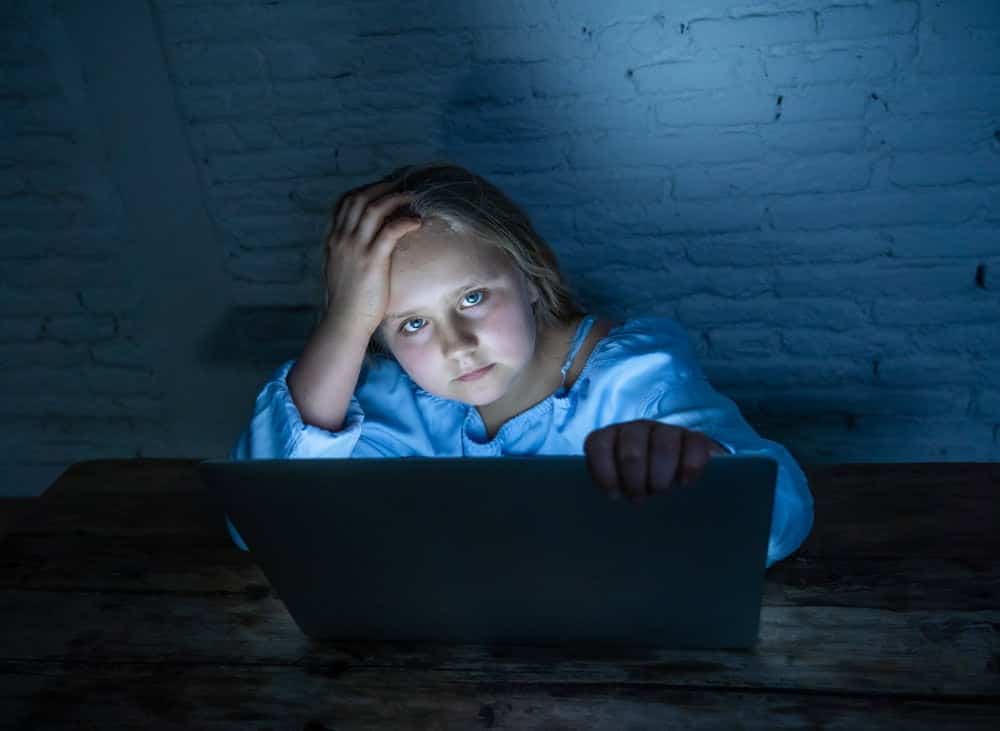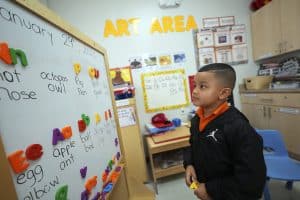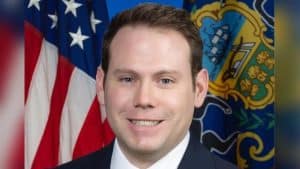According to a recent report, Pennsylvania ranks in the mediocre middle when it comes to how well states support public education. The commonwealth scores a solid C for a grade, tied with Maryland for 19th place in the rankings.
The report big picture
The report is “Public School in America: Measuring Each State’s Commitment to Democratically Governed Schools,” published by the Network for Public Education. NPE is an advocacy group the works to preserve, promote, improve and strengthen the nation’s public schools. NPE was founded in 2013 by education historian and scholar Diane Ravitch and public school teacher Anthony Cody; its executive director is Carol Burris, an award winning principal from New York State.
The report takes a state-by-state look at the extent of privatization and whether charter and voucher laws promote or discourage equity, responsibility, transparency, and accountability. The report also checks to see what kinds of guardrails are in place to protect students and taxpayers from discrimination, corruption, and fraud.
The report also looks at how well each state funds its public schools, how well it protects students who are being homeschooled, and how many restrictive laws limit the freedom to teach and learn.
Of the 50 states (plus the District of Columbia), five states earned an A grade. Thirteen were awarded a B. Nine states, including Pennsylvania, earned a C. Seventeen states rated an F, earning less than half of the available points in the scoring system.
The top five states are North Dakota, Connecticut, Vermont, Illinois and Nebraska; at the bottom of the heap are Arkansas, North Carolina, Utah, Arizona, and in last place, Florida. With 111 points possible, North Dakota scored 98; Florida scored 19.
Out of 111 points, Pennsylvania scored 76.
How did Pennsylvania do in each of the categories?
Privatization
Despite the best efforts of the GOP and Governor Josh Shapiro, Pennsylvania has not followed the path of super-charged Education Savings Account (ESA) style vouchers. The new wave of universal vouchers across the country has resulted primarily in taxpayer subsidies for students already attending private schools. But the keystone state has plenty of other problems with privatization of education.
Pennsylvania has had the Educational Improvement Tax Credit (EITC) and Opportunity Scholarship Tax Credit (OSTC) programs for over 20 years, a system that allows the wealthy to fund private schools instead of paying taxes to the state.
Pennsylvania’s voucher system is marked by a striking lack of transparency. The state has passed up $2 billion in revenue with virtually no accounting of how, or how effectively, that money has been used. The money vanishes into a complex system that includes hundreds of “scholarship” organizations — middlemen between the donor and the private school, often directly connected to that school. Those organizations may keep up to 20 percent of the donated funds, far above the standard amount in other states.
EITC and OSTC are truly opaque. Who’s using the vouchers? We don’t know. Are they getting a good education? We don’t know. What neighborhoods and local schools are the voucher users coming from? We don’t know.
But we do know what schools those vouchers are helping to fund, and that’s an ugly picture. 100 percent of the schools getting voucher dollars have policies in place that allow them to discriminate against students. Some of those schools will not accept students with special needs. Some will only accept students with high grades. Some require one or both parents to be born-again Christians. Some will reject or expel students who identify as LGBTQ. And some will reject or expel students for any reason at all.
Mt. Moriah Christian School “reserves the right to dismiss any student at any time as we may deem necessary.” Red Lion Christian School “maintains the right” to reject or expel any student who violates their standards, and they also reserve the “right of not defining the criteria or reason when applications are not accepted.”
In other words, any “choice” involved belongs primarily to the school, not the family. And there are no safeguards in place to protect the rights of students.
At the same time, taxpayers are being hit hard by Pennsylvania’s system for paying charter schools.
One problematic area is the handling of Special Ed payments. While the funding idea behind charters is that the money follows the child, when it comes to students with special needs, far more money follows the child than the sending district used.
READ: Pennsylvania Taxpayers Are Subsidizing Discrimination at Private and Religious Voucher Schools
Chester Uplands was a particularly egregious example of this practice. Pennsylvania special needs students are categorized by tiers, depending on how expensive their needs are to meet. A judge found that charter schools served only students in the lower-cost tiers ($0-$25,000), and yet were paid at the top tier level ($40,000). This problem actually compounds over time, giving charters a larger and larger piece of public school funding.
It’s a great way for charters to cash in at taxpayer expense, but when it comes to cashing in, nobody beats Pennsylvania cyber-charters. With the influx of pandemic students, Pennsylvania’s cyber charters are raking in close to a billion dollars in a system of payment that makes no sense at all.
Imagine you are going on a business trip with three of your co-workers. You are sharing a hotel room, but each of you are paying a different amount, based on your monthly expenses (mortgage, plus utilities, etc) for your home. This makes no sense. Why would the same hotel room cost four different prices, and why would that price be so far out of line with the actual cost of providing the room?
But that’s where we are with cyber charters. Cyber charters are collecting mountains of taxpayer dollars, and providing poor educational services for students in return.
In Pennsylvania, we have lots of education privatization, and it comes with very little protection for the interests of families, students, or taxpayers.
In this category, NPE gives Pennsylvania a D. The very bottom of the barrel is Arizona, nosing out Florida, Ohio and Utah. North Dakota and Kentucky tied for the highest score.
Homeschooling
In many states, homeschooling is largely unregulated. Eleven states do not even require parents to report that they are homeschooling their children. In those states, as Angela Grimberg of the Coalition for Responsible Home Education puts it, “any abusive caregiver can easily disappear their victims.” Many states also place no academic requirements on homeschooling, leaving no protections for the child’s right to an adequate education. Yet at the same time, several states with universal voucher programs require taxpayers to subsidize homeschoolers.
In this area, Pennsylvania is actually a leader, one of the four states that provide some serious protections for homeschooled children. Parents are required to notify the state that they are homeschooling their children. Immunizations are required, and the state mandates that certain core subjects be taught.
If you plan to homeschool your child yourself in Pennsylvania (as opposed to hiring a tutor or enrolling your child in a homeschool “satellite” of a private school), you must have at least a high school diploma, must provide the same state-mandated number of hours and days of instruction as a public school, cover the required subjects, have the student take the required state testing, and have your child evaluated by a qualified evaluator. It’s a system far more states should follow in order to protect the health, safety, and education of children.
Financial Support for Public Schools
In their 2023 report “Making the Grade,” the Education Law Center compares funding levels by state, and on an average basis, Pennsylvania ranks 9th in the nation, with funding levels of almost $4,000 above the national average. But as the report goes on to show, the high average funding level of Pennsylvania schools masks extremely unfair distribution.
Pennsylvania has one of the worst funding gaps between wealthy and poor districts in the nation; it lost its “Worst In The Nation” status only because Oregon and Nevada took precipitous drops in the last couple of years.
That’s a function of a funding system that places roughly two-thirds of the burden of funding school districts on local taxpayers. That’s the system that the court declared unconstitutional, ordering that “it is now the obligation of the Legislature, executive branch, and educators to make the constitutional promise a reality in this commonwealth.”
Freedom to Teach and Learn
The attack on public schools has been two-pronged. The first prong is to accuse public schools of all manner of malpractice and misbehavior to bolster the argument that taxpayers should fund alternatives.As agitator Chris Rufo told an audience at Hillsdale College, “To get universal school choice, you really need to operate from a place of universal school distrust.”
READ: Moms for Liberty and the Dominionist Assault on America’s ‘Education Mountain’
The second prong is to pass waves of regulation restricting what teachers and students can say or read within the walls of the school. Florida’s laws have been so broad, vague and repressive that they had to roll it back to settle a lawsuit over its clear violations of the First Amendment.
Pennsylvania has avoided such restrictive regulation on the state level. On the local level, some districts have seen concerted efforts to ban books, erase LGBTQ students and teachers, and impose one particular brand of regressively “Bible-based” religion. Voters in some districts — but not all — have taken steps to push back against discriminatory anti-diversity policies, but so far Harrisburg has stayed mostly out of it. But the same sort of Christian nationalists who have commandeered local elections would like very much to get their hands on the state legislature.
States have also hit the freedom to teach by minimizing the profession itself. In some states, you can become a teacher with nothing more than a high school diploma. In some states, teachers have no collective bargaining rights, and their compensation packages show the impact of their loss of power. And of course in all states, the assessment of a teacher’s ability is largely attached to how well students perform on a single standardized math and reading test. Pennsylvania has avoided much of that.
The NPE report gives Pennsylvania an A for the combined three areas, with the highest combined score for those three factors out of all states, just ahead of Illinois and Ohio. I’m not sure Pennsylvania deserves it, particularly given our unconstitutional, inequitable school funding system. The court ruling may be a cause for hope, but Pennsylvania is not the first state to receive a court directive to shape up a broken funding system, and our legislature would not be the first to stall for years and years and years to avoid fixing the problems.
The Big Picture
A report like this captures broad, state-sized pictures, and Pennsylvania remains a state of wide educational contrasts between wealthy and poor, rural and urban, and large and small school districts, as well as the contrast between districts that welcome and support diversity and those that are repressive and discriminatory.
READ: The Independence Law Center Seeks to Impose its Biblical Worldview on Pennsylvania School Districts
On average, we land in that mediocre middle. But on the extremes, we have districts that offer robust support for public education and districts that fail to do so. We can hope and work and vote to prevent Harrisburg from tipping the scale toward the latter.







